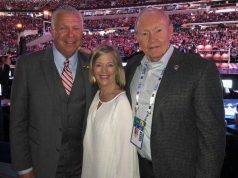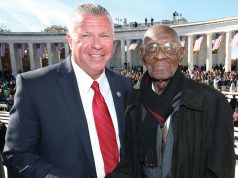Joseph Rost was a dis-tinguished scholar in leadership studies and was noted for his conception of followership. He defined the leadership process as “an influence relationship among leaders and followers who intend real changes that reflect their mutual purposes.”
From my view this definition is what takes place within the officiating community. The officiating leaders/management are working with the on-field/court referees to create change/improvement for the mutual purpose of serving the game.
With that in mind I offer that words matter in 21st Century officiating. We have our own language, as most organizations do. My career in law enforcement had its own language and I have come to learn military verbiage with the work I do there. However, the terms we use can be misinterpreted and as we all have learned perception creates a reality. Here are some thoughts for discussion regarding “sports-official speak” and how we can move the bar — for years we have used some of the following phrases:
“Call the obvious.” The concept of an “obvious” call is subjective and cannot be explained or understood. Provide a standard procedure and charge officials to identify legal versus illegal actions.
“Set the tone.” This is a vague and outdated term. Again, officials should evaluate game situations based on what is legal at the beginning, middle and end of the contest.
“Tough call/hard play/cheap foul.” This is referee speak for when we miss a play yet do not confront the reality. Similar to student-athletes and coaches, officials have a difficult task. There will always be debatable plays, but the judgment is either a correct call, incorrect call, non-call correct or non-call incorrect based on review of the play.
“Good/bad call at that time of the game.” An illegal act is not acceptable at a given point in the game.
“Handling coach/student-athletes.” We do not handle people; we interact with people.
Basketball referees have used “whack” as a term for the issuing of a technical foul. This creates a negative perception. Discipline decisions within officiating should be the same as any other call. Emotion need not be part of the 21st Century professional sports officials terminology. (All officials are expected to be professionals — some just happen to officiate professional athletes).
“My crew” or “Not in my game” are statements that lend to arrogance. Be a calm, confident, humble servant leader of the game.
The goal of management with respect to officiating is the validation (not defense) of calls and actions. Defending calls and actions sends a message that we are protecting and lends to bias.
Similarly, officials should be instructed to use rulebook language in communicating with coaches and one another. If we cite rulebook language, we should have nothing to hide. Covering our mouths while communicating during the game sends the wrong message about our words and intent.
Calibration is a term we should use to explain how we intend to have more consistency within the game and within an officiating staff. Provide calibration guidelines to help officials make decisions based on the same criteria.
Change feels awkward and uncomfortable. We have had rule changes, mechanic changes and so many other changes — it may be a good time to re-think how we express ourselves.
Because words matter.
On behalf of the NASO board, stay healthy, stay safe and take care of one another!




